Newsletter November 2018
 ICRH Global Newsletter ICRH Global Newsletter 22nd of November, 2018
|
Message from the Chair Prof. Marleen Temmerman |
| EVENTS |
| Lecture Human Rights Week by Prof. Marie Beaulieu On the occasion of the Human Rights Week, we cordially invite you to: “Addressing Mistreatment of Older Adults from a Human Rights’ Perspective”, a lecture by Prof. Marie Beaulieu (University of Sherbrooke, Canada) in Ghent. Marie Beaulieu is a full professor at the University of Sherbrooke. Since November 2010, she has held the position of Research Chair on Mistreatment of Older Adults financed by the Québec Government. Since July 2017, she is co-directing a center affiliated with the World Health Organisation (WHO) on Age-friendly communities and countering mistreatment. The principal focus of her 30-year career has been countering mistreatment, the sense of security of older adults, ethics, aging a 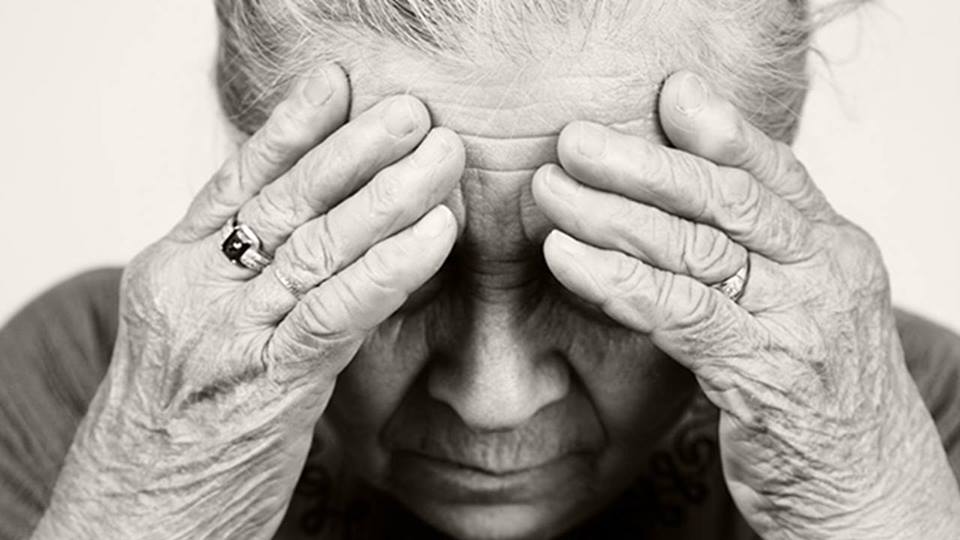 nd end-of-life care. nd end-of-life care.The lecture takes place on December 4th 2018 at the Faculty of Medicine and Health Sciences, UZ Campus, Aud. Z. Programme: 19:15-19:30: Welcome 19:30-20:30: Lecture 20:30-21:00: Q&A The lecture will be held in English. Subscribe before December 2nd through this link: https://eventmanager.ugent.be/LectureMarieBeaulieu |
Sensoa network day ‘about my border’ Sensoa organised a networking day about sexuality and the empowerment of migrants on the 19th of June in Brussels. Sensoa organised a networking day about sexuality and the empowerment of migrants on the 19th of June in Brussels.Prof. Ines Keygnaert (ICRH Belgium) was one of the speakers and presented her work ’10 years after ‘Hidden Violence’ The report can be found here (only in Dutch). |
Ghent University celebrates Emeritus Prof Marleen Temmerman |
| PROJECTS |
| Amplify change strengthening Grant – Strengthening Response to Sexual Violence in Kenya ICRH Kenya will partner with AmplifyChange to promote awareness of sexual and gender-based violence (SGBV) among key community members in Mombasa, identify potential GBV champions from among them and strengthen service delivery at the Coast General Hospital (CGH) Gender-based Violence and Recovery Center. This will be through  a strengthening grant to ICRHK. AmplifyChange is an international organization that provides funding for awareness creation and advocacy in sexual and reproductive health (SRH). Most AmplifyChange funding supports Organizations working in Africa and Asia. a strengthening grant to ICRHK. AmplifyChange is an international organization that provides funding for awareness creation and advocacy in sexual and reproductive health (SRH). Most AmplifyChange funding supports Organizations working in Africa and Asia.The strengthening grant will strengthen ICRHK activities; providing post –sexual violence services at Coast General hospital Gender violence Center, Developing tools for training and dissemination and to support inter-sectoral, county-wide collaborations with other partners providing SGBV services. Through this project, ICRHK will educate and empower key leaders and influential members of the community on the patterns of SGBV, gaps in GBV prevention and response, and the physical and psychological effects of SGBV. The short-term expectation from this goal is that these leaders will play a greater role in GBV advocacy at the different levels of interaction with the community and improved service delivery at the CGH SGBV center. The long-term goal will be that through these persons’ interactions with the community and their participation in community activities, we will have greater community awareness on GBV that the county government will formulate policies and laws that will help in preventing GBV. |
| Flemish Government delegation visits ICRH-Mozambique On the 18th of October 2018, a delegation from the Government of Flanders visited ICRH-Mozambique. 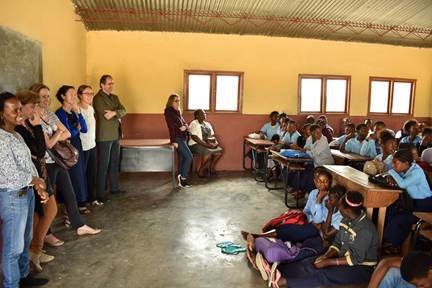 They traveled far to experience the impact of the recently concluded IQSCI project in Manhiça that was funded by the Flemish government and to hear firsthand what the plans and objectives are of the recently approved follow-up project focusing more on sexual and reproductive health and rights of young adolescents. The delegation visited different sites with targeted reproductive health services, such as a health centre where family planning is integrated into HIV and vaccination care, a secondary school that set up a counselling corner and that has regular health workers visits now and a primary school that is likely going to be included in the new project to work on early pregnancy and parent-child communication. They traveled far to experience the impact of the recently concluded IQSCI project in Manhiça that was funded by the Flemish government and to hear firsthand what the plans and objectives are of the recently approved follow-up project focusing more on sexual and reproductive health and rights of young adolescents. The delegation visited different sites with targeted reproductive health services, such as a health centre where family planning is integrated into HIV and vaccination care, a secondary school that set up a counselling corner and that has regular health workers visits now and a primary school that is likely going to be included in the new project to work on early pregnancy and parent-child communication. |
| Family planning project in Southern Mozambique A dissemination meeting marks the end of the IQSCI - Building Knowledge for Improve Quality of Services and Community Involvement to Increase Use of Family Planning in Southern Mozambique 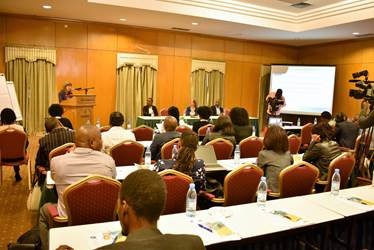 Since 2013, ICRHM has been implementing the IQSCI project (Building Knowledge for Improve Quality of Services and Community Involvement to Increase Use of Family Planning in Mozambique) in southern Mozambique with funds from the Government of Flanders. This project focused on increasing use of longer-acting reversible contraceptives (LARCs) through strengthening provision of family planning services in health facilities, schools and communities, as well as through creating demand via community mobilization activities. The project and study results were shared with officials from the Ministries of Health and Education, academic researchers, NGO and civil society representatives, donors and media at a dissemination meeting in Maputo in October. ICRH Mozambique has recently been awarded a new grant from the Government of Flanders to build on the experience of this project, focusing on SRH rights of younger adolescents and on parent-adolescent communication. A short film on the IQSCI project can be seen here Since 2013, ICRHM has been implementing the IQSCI project (Building Knowledge for Improve Quality of Services and Community Involvement to Increase Use of Family Planning in Mozambique) in southern Mozambique with funds from the Government of Flanders. This project focused on increasing use of longer-acting reversible contraceptives (LARCs) through strengthening provision of family planning services in health facilities, schools and communities, as well as through creating demand via community mobilization activities. The project and study results were shared with officials from the Ministries of Health and Education, academic researchers, NGO and civil society representatives, donors and media at a dissemination meeting in Maputo in October. ICRH Mozambique has recently been awarded a new grant from the Government of Flanders to build on the experience of this project, focusing on SRH rights of younger adolescents and on parent-adolescent communication. A short film on the IQSCI project can be seen here |
Gender norms in early adoloscent romantic relationsships - results of the Global Early Adoloscent Study |
| PEOPLE |
Emilie Peeters |
Leonardo Chavane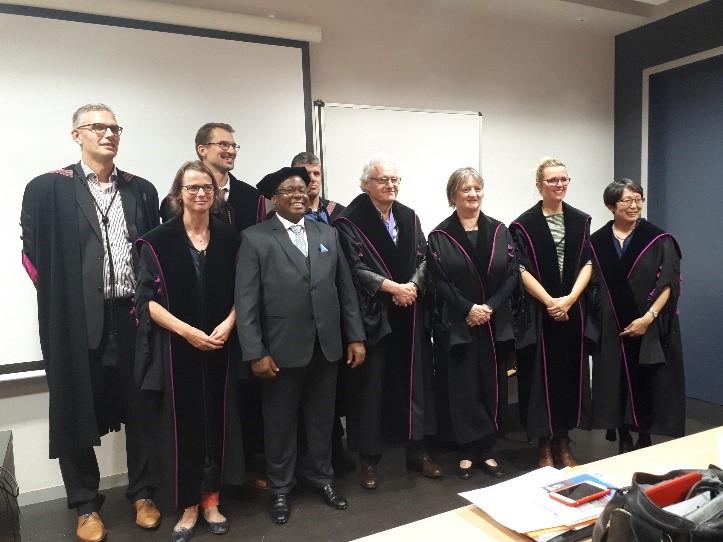 On October 11th Leonardo Chavane successfully defended his PhD thesis entitled: Facility based Maternal Mortality in Mozambique at the Faculty of Medicine and Health Sciences of Ghent University. More information and download thesis: click here On October 11th Leonardo Chavane successfully defended his PhD thesis entitled: Facility based Maternal Mortality in Mozambique at the Faculty of Medicine and Health Sciences of Ghent University. More information and download thesis: click here |
PUBLICATIONS |
| Prevalence of Sexual Violence in Migrants, Applicants for International Protection, and Refugees in Europe: A Critical Interpretive Synthesis of the Evidence Sexual violence (SV) is a major public health problem, with negative socio-economic, physical, mental, sexual, and reproductive health consequences. Migrants, applicants for international protection, and refugees (MARs) are vulnerable to SV. Since many European countries are seeing high migratory pressure, the development of prevention strategies and care paths focusing on victimised MARs is highly needed. To this end, this study reviews evidence on the prevalence of SV among MAR groups in Europe and the challenges encountered in research on this topic. A critical interpretive synthesis of 25 peer-reviewed academic studies and 22 relevant grey literature documents was conducted based on a socio-ecological model. Evidence shows that SV is highly frequent in MARs in Europe, yet comparison with other groups is still difficult. Methodologically and ethically sound representative studies comparing between populations are still lacking. Challenges in researching SV in MARs are located at the intrapersonal, interpersonal, community, societal, and policy levels. Future research should start with a clear definition of the concerned population and acts of SV to generate comparable data. Participatory qualitative research approaches could be applied to better grasp the complexity of interplaying determinants of SV in MARs. View Full-Text De Schrijver L, Vander Beken T, Krahé B, Keygnaert I. Prevalence of Sexual Violence in Migrants, Applicants for International Protection, and Refugees in Europe: A Critical Interpretive Synthesis of the Evidence. Int. J. Environ. Res. Public Health 2018, 15, 1979. |
| Care for victims of sexual assault: Guide for significant others What is sexual violence? How often does it occur? How do you respond to it as a victim or survivor? How can you offer support as a parent, partner, friend or member of family? When someone you care about has become a victim of sexual violence, chances are that it affects you too and that you have many questions. It is important for the recovery process that the victim knows where to find good support and get it. This guide explains some typical reactions of victims after sexual violence, so that you can better understand what she/he is going through. This guide also gives you practical tips to support her/him through the recovery period. Finally, it gives you some useful tips to deal with your own feelings and needs, which are also important. Keygnaert I & Van Melkebeke I. Care for victims of sexual assault : Guide for significant others. ICRH-Universiteit Gent, Gent, België, ISBN-EAN : 9789078128540. The guide can be found at http://www.seksueelgeweld.be/zorgcentra-na-seksueel-geweld-wat-voor-wie-waar in the 4 languages |
| Towards a more integrated and gender-sensitive care delivery for victims of sexual assault: key findings and recommendations from the Belgian sexual assault care centre feasibility study Sexual assault remains a major threat to public health, affecting every gender, gender identity and sexual orientation. Following the Belgian ratification of the Istanbul Convention in 2016, the feasibility of a Belgian sexual assault centre model was investigated, aiming to provide more integrated and patient-centred health and judiciary services to victims of sexual assault. By actively involving health professionals, police and judiciary system representatives, as well as victims themselves, this feasibility study eventually fed into the Belgian Sexual Assault Care Centre model. In this process, this paper assessed current Belgian health services and the degree to which the implementation of this model could contribute to both a more integrated and gender-sensitive care delivery. Findings from this study and the subsequent recommendations aim to contribute to similar reforms in other countries that have already taken or are about to take steps towards an integrated, multi-agency support framework for victims of sexual assault. A qualitative, descriptive analysis of the survey response of 60 key health professionals (N = 60) representing 15 major Belgian hospitals was first conducted. Comparing their approach with the international guidelines and standards, a Strengths Weaknesses Opportunities and Threats analysis of the current sexual assault health services and their potential transition to the Sexual Assault Care Centre model was then executed. Despite adequate equipment, the clear fragmentation of health services and limited follow-up hamper an integrated care delivery in most hospitals. Only three hospitals differentiated their sexual assault care protocol based on the victim’s gender, gender identity and sexual orientation. A striking unawareness among health professionals of sexual assault in male victims, as well as in gender and sexual minorities further hampers a gender sensitive care delivery. The Sexual Assault Care Centre model aims to counter most of the current sexual assault health services’ weaknesses and threats hampering an integrated care for victims of sexual assault. Further research and training of health professionals are however required in order to tune this integrated form of care to sexuality and gender-based differences in victims’ already multi-faceted healthcare needs. Hendriks B, Vandenberghe A, Peeters L, Roelens K and Keygnaert I. Towards a more integrated and gender-sensitive care delivery for victims of sexual assault: key findings and recommendations from the Belgian sexual assault care centre feasibility study. International Journal for Equity in Health (2018) 17:152 https://doi.org/10.1186/s12939-018-0864-3 |
| Establishing Sexual Assault Care Centres in Belgium: health professionals’ role in the patient-centred care for victims of sexual violence Having ratified the Convention of Istanbul, the Belgian federal government commits itself to the foundation of Sexual Assault Care Centres (SACC). In the light of researching the feasibility of these centres, this study aimed to evaluate the care for victims of sexual violence (SV) in Belgian hospitals anno 2016 as well as to formulate recommendations for the intended model. Between April and October 2016, a questionnaire was distributed to 159 key health professionals active in 17 different hospitals attached to an AIDS Referral Centre. The survey covered four parts, i.e. the health professionals’ profile, their knowledge, attitude and practices, an assessment of the hospital’s policy and the caregivers’ opinion on the care for victims of SV and on the intended SACCs. Subsequently, a descriptive analysis using ‘IBM SPSS Statistics 23’was performed. A total of 60 key health professionals representing 15 different hospitals completed the questionnaire resulting in a response rate of 38%. The results showed a lack of knowledge and practical experience of caregivers’ regarding the care for SV victims. Approximately 30% of responders face personal or professional difficulties upon provision of care to victims of SV. Participants evaluate the current care as good, despite the limited psychosocial support, follow-up, insight for the needs of vulnerable groups and support for family, relatives and health professionals. Yet, the majority of health professionals appraise the SACCs as the best approach for both victims and caregivers. By introducing a SACC, the Belgian federal government aims to provide holistic and patient-centered care for victims of SV. Essential in patient-centred health care is an extensive and continuous education, training and supervision of health professionals concerning the care for victims, support for family, relatives and caregivers. At the end and as a result of a participatory process with many professional experts as well as victims, a specific Belgian model, adjusted to the health care system anno 2016 was developed for piloting. The main challenges in establishing SACCs are situated at the institutional and policy level. Collaborating with other institutions and further research are herewith required. Vandenberghe A, Hendriks B, Peeters L, Roelens K and Keygnaert I. Establishing Sexual Assault Care Centres in Belgium: health professionals’ role in the patient-centred care for victims of sexual violence. BMC Health Services Research (2018) 18:807 https://doi.org/10.1186/s12913-018-3608-6 |
| Feasibility, acceptability and potential sustainability of a 'diagonal' approach to health services for female sex workers in Mozambique Female sex workers (FSWs) have restricted access to sexual and reproductive health (SRH) services. We therefore implemented and tested a ‘diagonal’ intervention which combined strengthening of FSW-targeted services (vertical) with making public health facilities more FSW-friendly (horizontal). Applying a convergent parallel mixed-methods design, we triangulated the results of the analysis of process indicators, semi-structured interviews with policy makers and health managers, structured interviews with health care providers and group discussions with peer outreach workers. We then formulated integrated conclusions on the interventions’ feasibility, acceptability by providers, managers and policy makers, and potential sustainability. The intervention, as designed, was considered theoretically feasible by all informants, but in practice the expansion of some of the targeted services was hampered by insufficient financial resources, institutional capacity and buy-in from local government and private partners, and could not be fully actualised. In terms of acceptability, there was broad consensus on the need to ensure FSWs have access to SRH services, but not on how this might be achieved. Targeted clinical services were no longer endorsed by national government, which now preferred a strategy of making public services more friendly for key populations. Stakeholders judged that the piloted model was not fully sustainable, nor replicable elsewhere in the country, given its dependency on short-term project-based funding, lack of government endorsement for targeted clinical services, and viewing the provision of community activities as a responsibility of civil society. We concluded that in the current Mozambican context, a ‘diagonal’ approach to ensure adequate access to sexual and reproductive health care for female sex workers is not fully feasible, acceptable or sustainable, because of insufficient resources and lack of endorsement by national policy makers for the targeted, vertical component. Lafort Y, Ismael de Melo MS, Lessitala F, Griffin S, Chersich M, Delva W. Feasibility, acceptability and potential sustainability of a 'diagonal' approach to health services for female sex workers in Mozambique. BMC Health Serv Res. 2018 Oct 3;18(1):752. doi:10.1186/s12913-018-3555-2. |
| Mapping maternal mortality rate via spatial zero-inflated models for count data: A case study of facility-based maternal deaths from Mozambique. Maternal mortality remains very high in Mozambique, with estimates from 2015 showing a maternal mortality ratio of 489 deaths per 100,000 live births, even though the rates tend to decrease since 1990. Pregnancy related hemorrhage, gestational hypertension and diseases such as malaria and HIV/AIDS are amongst the leading causes of maternal death in Mozambique, and a significant number of these deaths occur within health facilities. Often, the analysis of data on maternal mortality involves the use of counts of maternal deaths as outcome variable. Previously we showed that a class of hierarchical zero-inflated models were very successful in dealing with overdispersion and clustered counts when analyzing data on maternal deaths and related risk factors within health facilities in Mozambique. This paper aims at providing additional insights over previous analyses and presents an extension of such models to account for spatial variation in a disease mapping framework of facility-based maternal mortality in Mozambique. Loquiha O, Hens N, Chavane L, Temmerman M, Osman N, Faes C, Aerts M. PLoS One. 2018 Nov 9;13(11):e0202186. Mapping maternal mortality rate via spatial zero-inflated models for count data: A case study of facility-based maternal deaths from Mozambique. doi: 10.1371/journal.pone.0202186. eCollection 2018. |


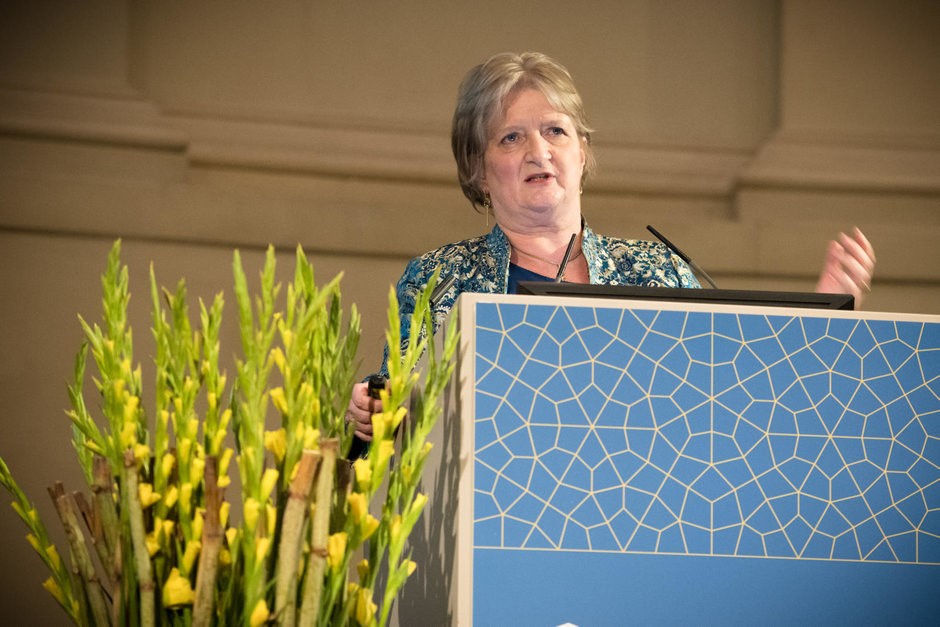 October 12th was a day of great joy for me, celebrating a journey of 40 years women’s health and rights. A journey that I shared with many who joined me for my ‘Emeritus celebration’ organised by Ghent University and ICRH.
October 12th was a day of great joy for me, celebrating a journey of 40 years women’s health and rights. A journey that I shared with many who joined me for my ‘Emeritus celebration’ organised by Ghent University and ICRH.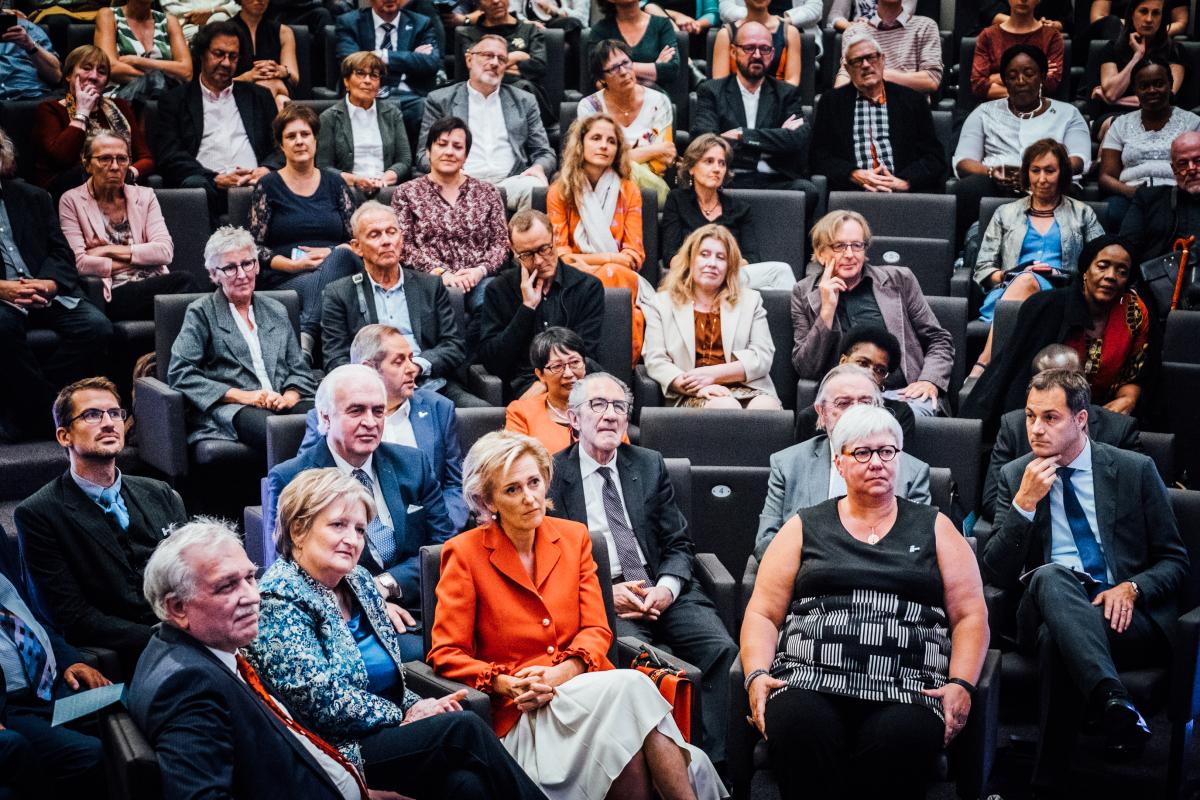 Prof Temmerman played a very unique role at the University combining health care and expertise as an Obstetrician-Gynaecologist (over 18,000 deliveries), political experience as a Belgian Senator, research skills as a Full Professor (over 500 peer reviewed publications and 52 PhD students), and advocacy and activism for health and rights. She is the Founding Director of ICRH with a broad public outreach through media and the hundreds of public lectures in Belgium, Europe and all over the world. Currently, she works at Aga Khan University in Nairobi Kenya, leading the East-African Centre of Excellence in Women, Adolescent and Child Health.
Prof Temmerman played a very unique role at the University combining health care and expertise as an Obstetrician-Gynaecologist (over 18,000 deliveries), political experience as a Belgian Senator, research skills as a Full Professor (over 500 peer reviewed publications and 52 PhD students), and advocacy and activism for health and rights. She is the Founding Director of ICRH with a broad public outreach through media and the hundreds of public lectures in Belgium, Europe and all over the world. Currently, she works at Aga Khan University in Nairobi Kenya, leading the East-African Centre of Excellence in Women, Adolescent and Child Health. On 15 September 2018 our colleague Sara De Meyer participated in the European Association for Research on Adolescence conference 2018 “Nurturing Adolescent growth” in Ghent Belgium and on 5 October 2018 she contributed to the 21st European Regional IAAH Conference 2018 and III National Conference in Adolescent Health “Equal opportunities for healthy development for all adolescents” in Chisinau Moldova. During both conference she presented qualitative results of the Global Early Adolescent Study. In a poster (Ghent) and an oral presentation (Chisinau) she illustrated how gender norms occur in early adolescent romantic relationships. The research indicates the need for future investigation on how gender norms in early adolescence can influence sexual and reproductive health and wellbeing in a later stage of adolescence. ICRH is still looking for additional funding to investigate this research question by implementing a longitudinal cohort study in Antwerp and Belgium.
On 15 September 2018 our colleague Sara De Meyer participated in the European Association for Research on Adolescence conference 2018 “Nurturing Adolescent growth” in Ghent Belgium and on 5 October 2018 she contributed to the 21st European Regional IAAH Conference 2018 and III National Conference in Adolescent Health “Equal opportunities for healthy development for all adolescents” in Chisinau Moldova. During both conference she presented qualitative results of the Global Early Adolescent Study. In a poster (Ghent) and an oral presentation (Chisinau) she illustrated how gender norms occur in early adolescent romantic relationships. The research indicates the need for future investigation on how gender norms in early adolescence can influence sexual and reproductive health and wellbeing in a later stage of adolescence. ICRH is still looking for additional funding to investigate this research question by implementing a longitudinal cohort study in Antwerp and Belgium. Emilie studied political sciences and became passioned about sexual and reproductive health and the importance of it in the fight against inequality. She started her career as a parliamentary assistant of Prof. Marleen Temmerman. Afterwards she worked for different international NGO’s, where she mostly worked around trying to convince policy makers of the importance of investing in sexual and reproductive health.
Emilie studied political sciences and became passioned about sexual and reproductive health and the importance of it in the fight against inequality. She started her career as a parliamentary assistant of Prof. Marleen Temmerman. Afterwards she worked for different international NGO’s, where she mostly worked around trying to convince policy makers of the importance of investing in sexual and reproductive health.